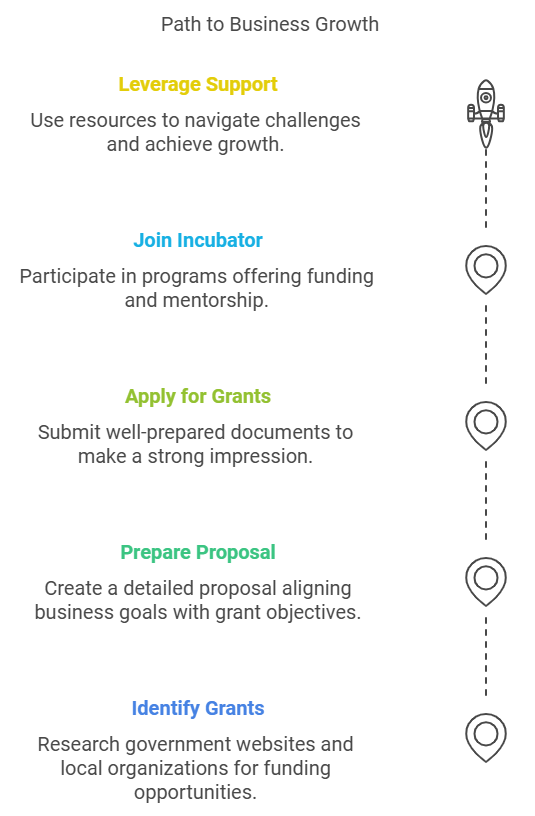 Finding the right startup funding strategies is essential for growing your business. Choosing an approach depends on your goals and resources. From self-funding to seeking external investment, there are many options to explore. Each strategy comes with its own benefits and challenges, so understanding them is key.
Finding the right startup funding strategies is essential for growing your business. Choosing an approach depends on your goals and resources. From self-funding to seeking external investment, there are many options to explore. Each strategy comes with its own benefits and challenges, so understanding them is key.
Funding strategies often include leveraging personal savings, attracting investors, or building partnerships with larger companies. These methods provide not just funding but also resources and guidance. By carefully selecting your approach, you can secure the support your startup needs.
Whether you’re launching a new product or expanding operations, funding plays a central role in your success. Exploring available strategies helps you identify opportunities that align with your business goals. Planning effectively ensures you have the resources to grow and thrive.
Bootstrapping Your Startup: Pros and Cons
Bootstrapping is a common approach to funding your startup by using personal savings or revenue from early operations. This strategy allows you to maintain full control over your business decisions. You won’t need to share equity or deal with external investors. Many founders prefer this option for the independence it provides.
However, self-funding comes with challenges. Limited resources can restrict your ability to grow quickly or invest in new opportunities. You may also face added stress as personal finances are at risk. Despite these obstacles, bootstrapping can teach you to prioritize spending and make smarter financial decisions.
This method of funding highlights key benefits and risks that should be considered in your startup funding strategies. While it demands careful planning and discipline, it also enables you to retain ownership and build a business on your terms. By understanding these trade-offs, you can decide if bootstrapping aligns with your goals.
Angel Investors and Their Role in Early-Stage Funding
Angel investors play a key role in early-stage funding by providing financial support and valuable guidance to startups. They typically invest their own money, making them more approachable and flexible compared to larger institutional investors. If you’re seeking funding, attracting an angel investor can give your business the boost it needs.
To attract angel investors, you need a clear and compelling business plan. Highlight your startup’s potential for growth and profitability. Investors look for innovative ideas, strong market demand, and capable leadership. By showcasing these qualities, you increase your chances of securing their interest.
Beyond capital, angel investors bring expertise, mentorship, and industry connections to your business. Their experience can help you navigate challenges and make informed decisions. These contributions make them a valuable resource as you develop your startup funding strategies. By building strong relationships with angel investors, you gain both funding and strategic support to drive your business forward.
Government Grants and Startup Incubators
Government grants and startup incubators offer valuable resources to help you grow your business. Grants provide non-repayable funding, often supporting innovative ideas or specific industries. To find opportunities, research government websites or local business support organizations. Pay close attention to eligibility criteria and deadlines to increase your chances of success.
When applying for grants, create a clear proposal outlining your goals and how the funding will be used. Focus on how your business aligns with the grant’s objectives. Submitting accurate, well-prepared documents can make a strong impression and set your application apart.
Startup incubators and accelerators are also effective parts of startup funding strategies. These programs offer funding, mentorship, and also networking opportunities to help your business succeed. Incubators often focus on early-stage startups, while accelerators work with more developed businesses. By participating in these programs, you gain access to expertise and connections that support long-term growth.
Combining grants with incubator or accelerator support can strengthen your financial position and strategic direction. These resources provide funding, guidance, as well as visibility to help you navigate challenges and build a sustainable business.
Venture Capital: Navigating the Process
Securing venture capital can be a transformative step for your startup. To begin, you must prepare a strong pitch that highlights your business’s potential. Investors look for innovative ideas, large market opportunities, and a clear path to profitability. Clear communication about your vision and growth plan is essential to attract interest.
Once you gain interest, understanding the term sheet is critical. This document outlines the investment’s terms, including equity stakes, valuation, and control rights. Reviewing it carefully helps you negotiate terms that align with your goals. It’s a key step in maintaining a balance between funding and control over your company.
Managing relationships with venture capitalists is equally important. They bring more than funding—they provide expertise, mentorship, and industry connections. Maintaining open communication and setting clear expectations fosters a strong partnership. These relationships become part of your broader startup funding strategies, helping you access resources and support as your business grows. By mastering these steps, you can secure capital while building lasting partnerships that support your long-term success.
Crowdfunding as a Funding Option
Crowdfunding has become a popular option for startups seeking early-stage funding. Platforms like Kickstarter and Indiegogo connect you directly with potential backers. These platforms allow you to present your product or idea to a wide audience, raising funds without traditional investment channels.
To run a successful crowdfunding campaign, preparation is key. Start with a clear, compelling pitch that explains your product and its value. Visuals like videos or prototypes help backers understand what they’re supporting. Setting realistic funding goals as well as offering attractive rewards encourages contributions and builds excitement.
Communication also plays a significant role. Keep your backers updated throughout the campaign and beyond. Sharing your progress builds trust and fosters loyalty. Crowdfunding can be an important part of your startup funding strategies, offering both financial support and also valuable exposure. By engaging directly with your audience, you gain feedback and build a community invested in your success.
Strategic Partnerships and Corporate Investment
Strategic partnerships and corporate investment offer significant opportunities for your startup to secure funding and access valuable resources. Partnering with larger companies can help you tap into established markets and also gain expertise. These alliances also provide the funding needed to support growth and scalability.
To attract corporate investors, demonstrate how your startup aligns with their goals. Highlight the mutual benefits, such as innovation, revenue growth, or market expansion. A clear value proposition helps build interest and trust. Partnerships often include financial support, technical resources, and mentorship, which can strengthen your business.
Maintaining open communication is essential to managing these relationships. Clearly outline expectations, goals, and timelines to ensure successful collaboration. Strategic partnerships should complement your overall startup funding strategies by providing financial backing as well as broader opportunities for growth. These partnerships not only enhance your funding options but also offer tools and connections to help your business thrive in competitive markets.
Conclusion
Exploring various startup funding strategies can help you find the right approach to support your business’s growth and long-term success. From bootstrapping to corporate partnerships, each option offers unique benefits and challenges. By understanding these opportunities, you can make informed decisions that align with your goals.
Leveraging resources like grants, crowdfunding, and accelerators can provide both funding and guidance. At the same time, building strong relationships with investors or partners opens doors to new markets and expertise. Combining these strategies gives you flexibility as well as stability as your business evolves.
Your choice of funding strategy should reflect your business’s specific needs and objectives. By staying adaptable and informed, you position your startup for success in a competitive environment. Effective planning and also execution will help you secure the support necessary to achieve sustainable growth.


